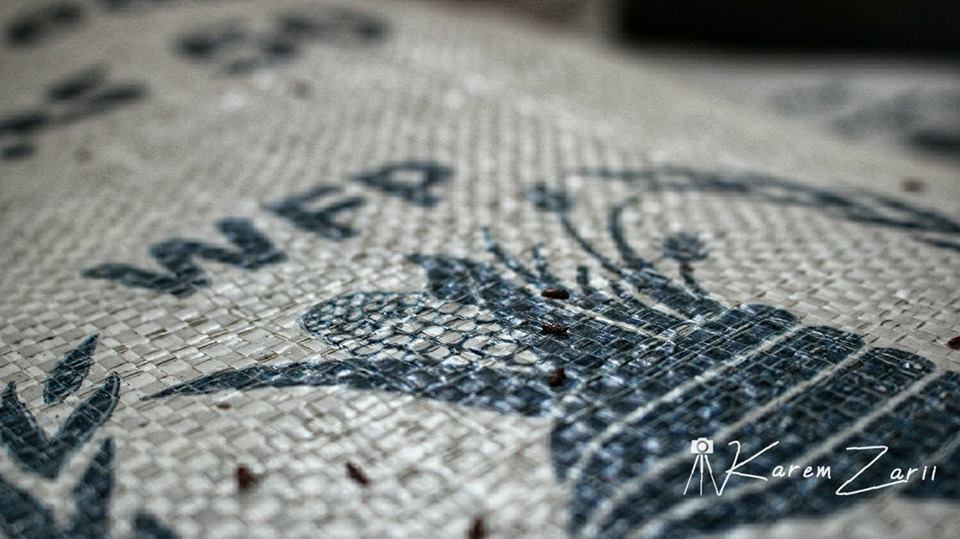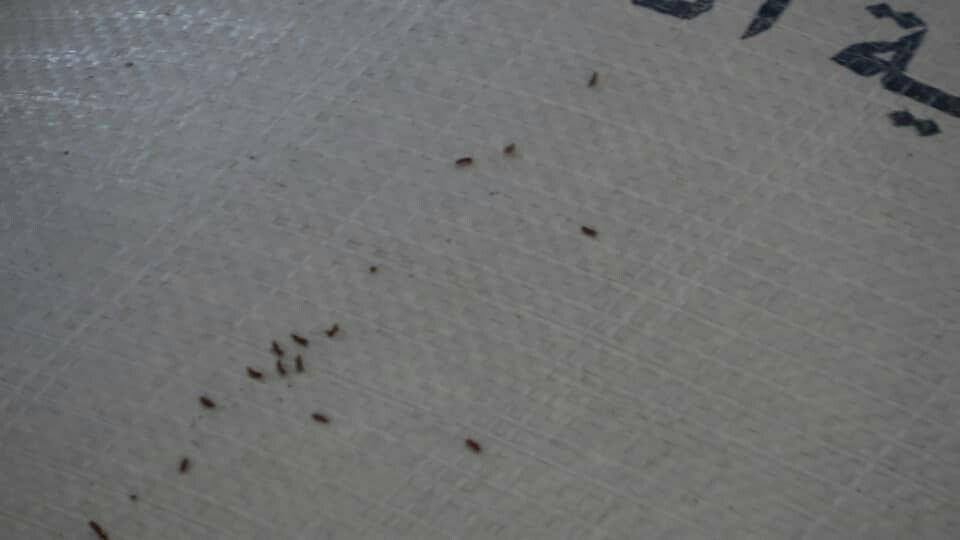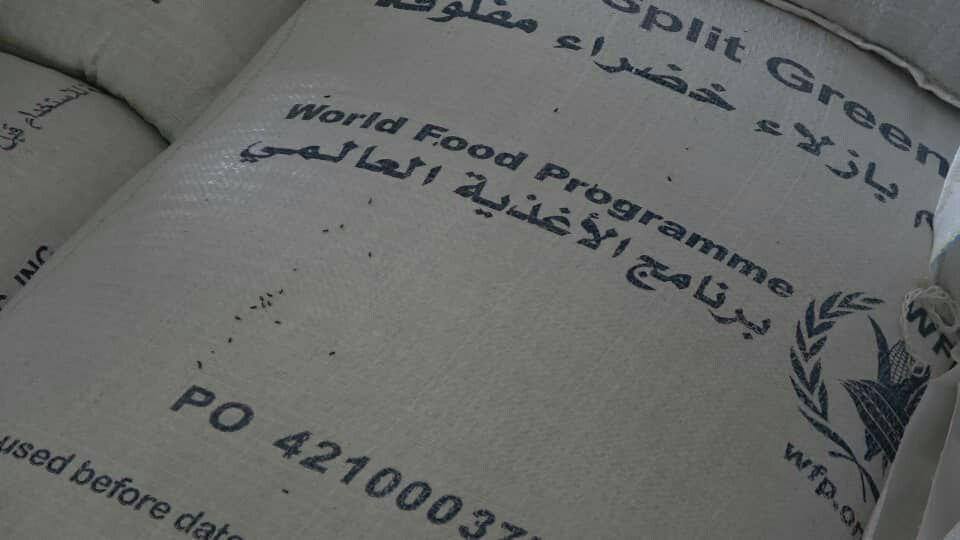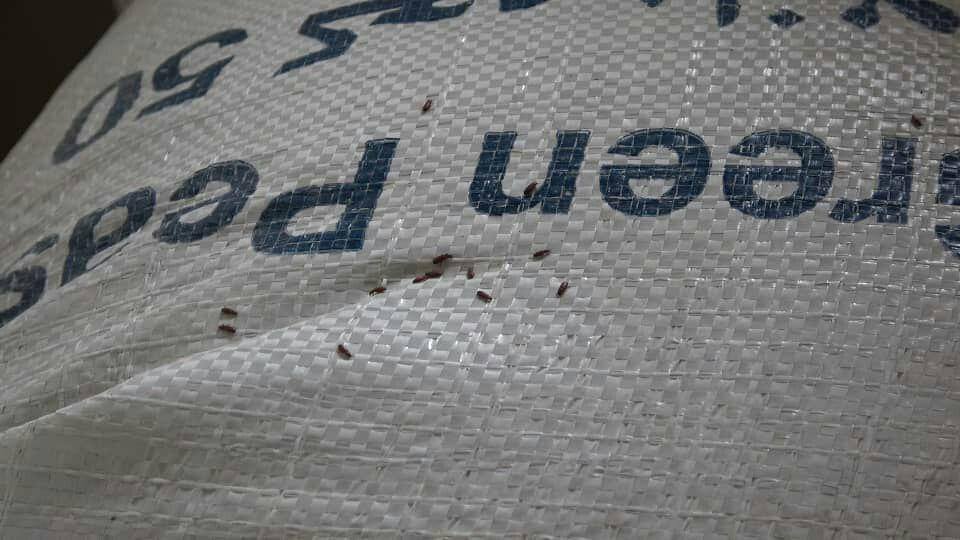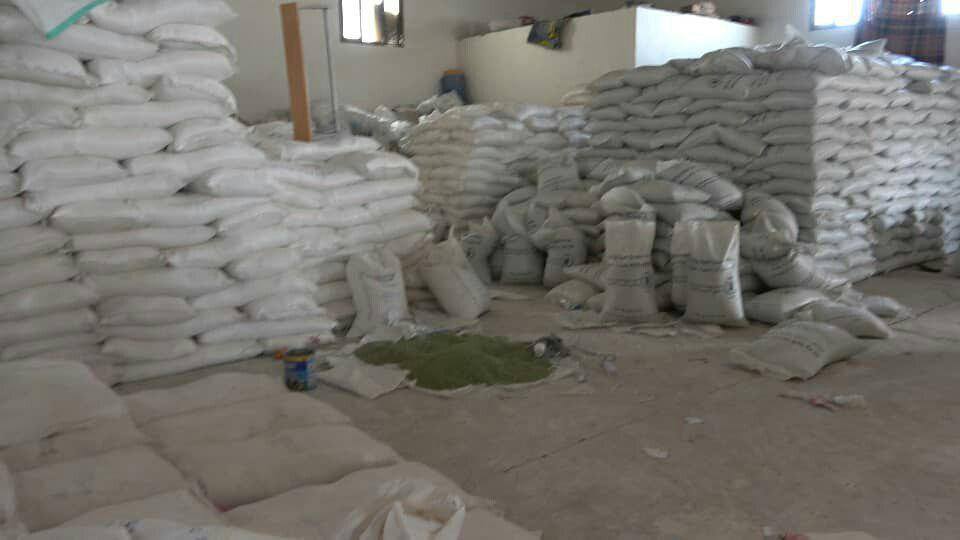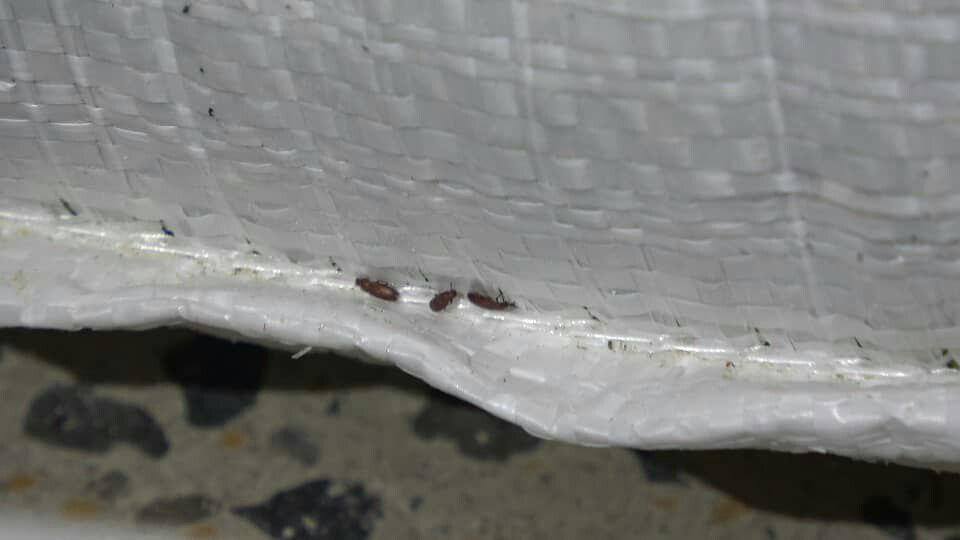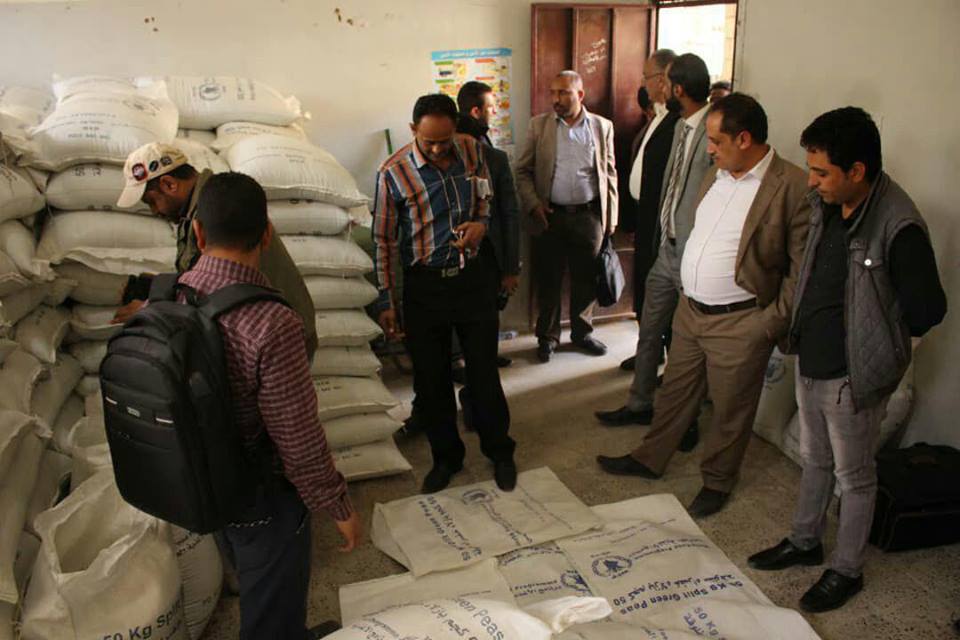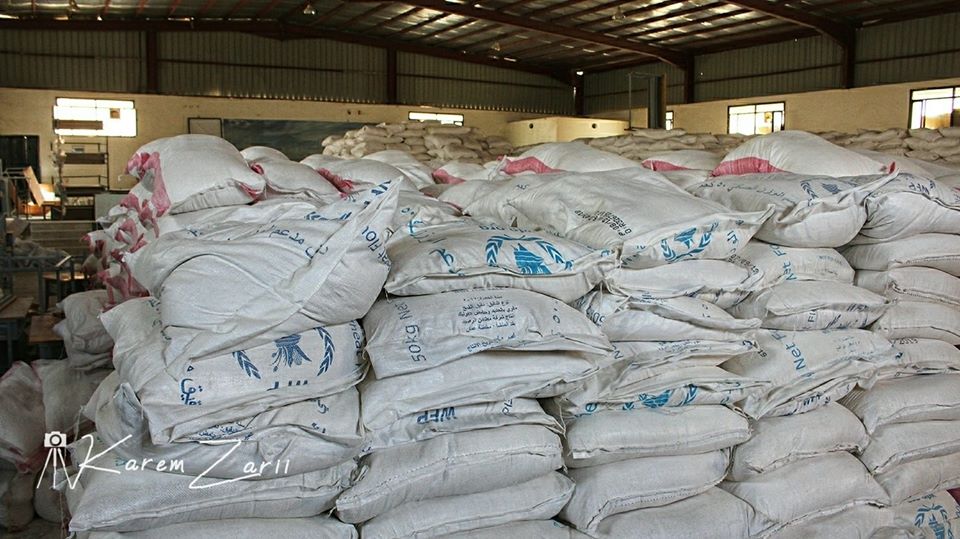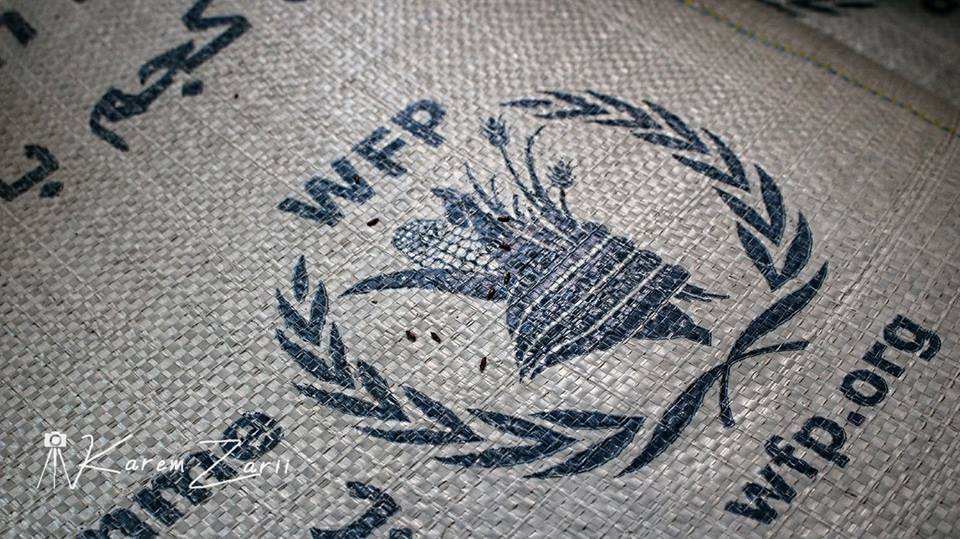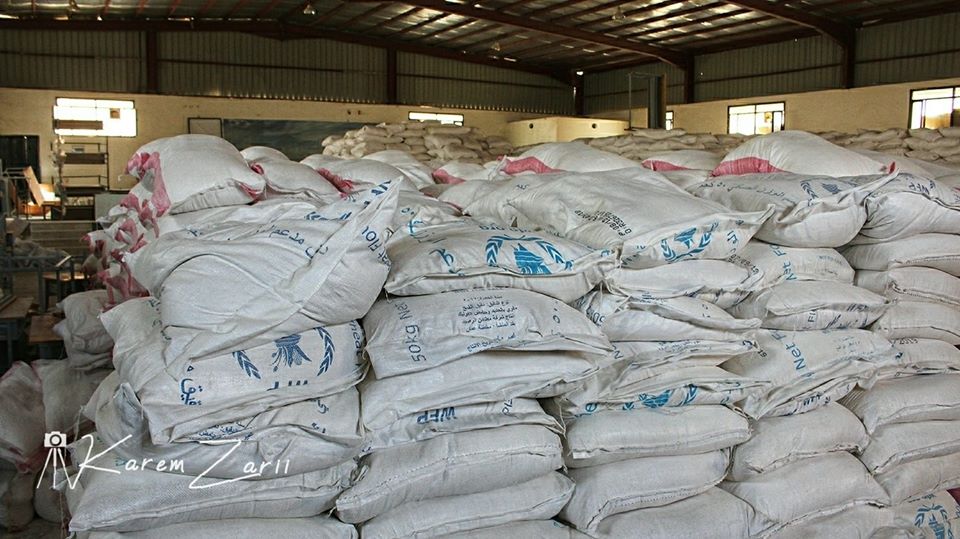WFP in Yemen Delivers Flour Infested by Eating Beetles
Yamanyoon
In a new World Food Program scandal within Yemen, in a series of previous scandals, the results of a field visit by the National Commission for the Management, Coordination and Humanitarian Response to Disasters showed WFP distributing rotten food infested with insects.
The National Authority for the Management, Coordination and Humanitarian Affairs sent a team to investigate after a civilian reported some issue against the World Food Program (WFP) for giving rotten food in the Yemeni capital of Sana’a.
According to a statement issued by the National Authority, on the basis of a report on the presence of spoiled foodstuffs at the distribution points of the World Food Program in legumes at the distributing point in the school of Mu’tasim and al-Shami School, which both are located in the capital Sana’a, the Commission formed a committee to get to these centers. It turned out that there are small insects in legumes at the World Food Centers within these two schools.
For his part, the Director General of Legal Affairs of the National Authority for the Management and Coordination of Humanitarian Affairs and Disaster Response, Nabil Shami, said in a special statement to the Yemeni Press that during the previous period there were complaints received by the Commission from some branches that there are spoiled materials of the WFP, The Board of Directors has commissioned a committee that has visited some WFP warehouses and found some rotten substances, including soy.
He pointed out that after the presence of corrupt materials, the Commission summoned the General Organization for Standardization and Metrology and the Central Organization for Control and Accounting. The Commission also informed the prosecution to attend the warehouses of the WFP. The General Authority for Standardization and Metrology took a sample of the corrupt materials, “Soybeans”, and found that is not usable and has been submitted to the competent authorities.
Al-Shami said that the World Food Program has been informed to remove the rest of the material from the store that are already rotten so that the rest of the food aid doesn’t get spoiled, stressing that if the organization doesn’t get rid of them, the Commission will communicate with the concerned parties, And take strict legal action.
On the extent of safety and validity of the materials distributed by the program in the rest of the provinces, Shami said that the head of the committee in charge on this matter in the capital Sana’a has informed the branches of the Commission in the provinces to take a to the stores of the food program in which to examine the materials and ensure its validity.
As for the rotten quantity found in the warehouses of the program in the capital Sanaa, Shami reported that it is estimated to be 700to 800 bags weighing 50 kg each.
Al-Shami confirmed that he had contacted the Central Organization for Control and Accountability to raise the perpetrators of the distribution of this rotten material to the prosecution to take legal action against them.
It is noteworthy that about two weeks ago, several media published images showing part of the corruption of the World Food Program of the United Nations to distribute a shipment of rotten wheat, which sent to Yemen, according to a document issued by the “Consumer Protection Association” in the National Salvation Government in Sanaa revealed that the wheat which arrived in Yemen had “expired”.
The ship said that the vessel had unloaded a large shipment of wheat in the port city of Aden, noting that the vessel that arrived in Aden port was carrying a shipment of 32 thousand tons of American wheat, expired, and the World Food Program neglected this issue and continued on importing it and delivering to Yemenis.
The association said that “despite the rot of wheat on board the ship and the lack of consumption, but it was emptied and filled in bags in preparation for the provision of assistance to Yemeni citizens, although it was supposed to be returned from where it came from because it cannot be used by humans.
The images showed the 32-tonne rotten wheat shipment of wheat provided by the World Food Program (WFP) as an aid to the Yemeni people.

